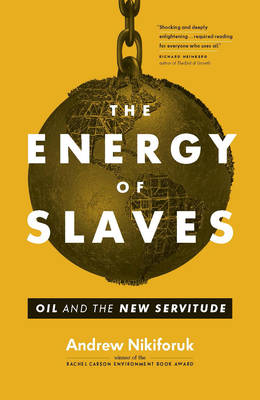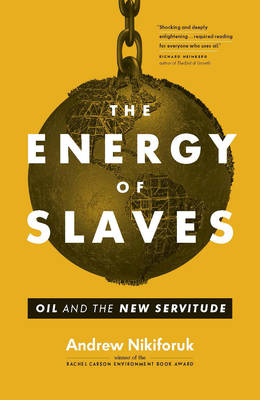
Vous voulez être sûr que vos cadeaux seront sous le sapin de Noël à temps? Nos magasins vous accueillent à bras ouverts. La plupart de nos magasins sont ouverts également les dimanches, vous pouvez vérifier les heures d'ouvertures sur notre site.
- Retrait gratuit dans votre magasin Club
- 7.000.000 titres dans notre catalogue
- Payer en toute sécurité
- Toujours un magasin près de chez vous
Vous voulez être sûr que vos cadeaux seront sous le sapin de Noël à temps? Nos magasins vous accueillent à bras ouverts. La plupart de nos magasins sont ouverts également les dimanches, vous pouvez vérifier les heures d'ouvertures sur notre site.
- Retrait gratuit dans votre magasin Club
- 7.000.0000 titres dans notre catalogue
- Payer en toute sécurité
- Toujours un magasin près de chez vous
Description
By the winner of the Rachel Carson Environment Book Award Ancient civilizations relied on shackled human muscle. It took the energy of slaves to plant crops, clothe emperors, and build cities. Nineteenth-century slaveholders viewed critics as hostilely as oil companies and governments now regard environmentalists. Yet the abolition movement had an invisible ally: coal and oil. As the world's most versatile workers, fossil fuels replenished slavery's ranks with combustion engines and other labor-saving tools. Since then, cheap oil has transformed politics, economics, science, agriculture, and even our concept of happiness. Many North Americans today live as extravagantly as Caribbean plantation owners. We feel entitled to surplus energy and rationalize inequality, even barbarity, to get it. But endless growth is an illusion. What we need, Andrew Nikiforuk argues in this provocative new book, is a radical emancipation movement that ends our master-and-slave approach to energy. We must learn to use energy on a moral, just, and truly human scale.
Published in Partnership with the David Suzuki Institute.
Spécifications
Parties prenantes
- Auteur(s) :
- Editeur:
Contenu
- Nombre de pages :
- 272
- Langue:
- Anglais
- Collection :
Caractéristiques
- EAN:
- 9781553659785
- Date de parution :
- 18-09-12
- Format:
- Livre relié
- Format numérique:
- Genaaid
- Dimensions :
- 142 mm x 218 mm
- Poids :
- 498 g







